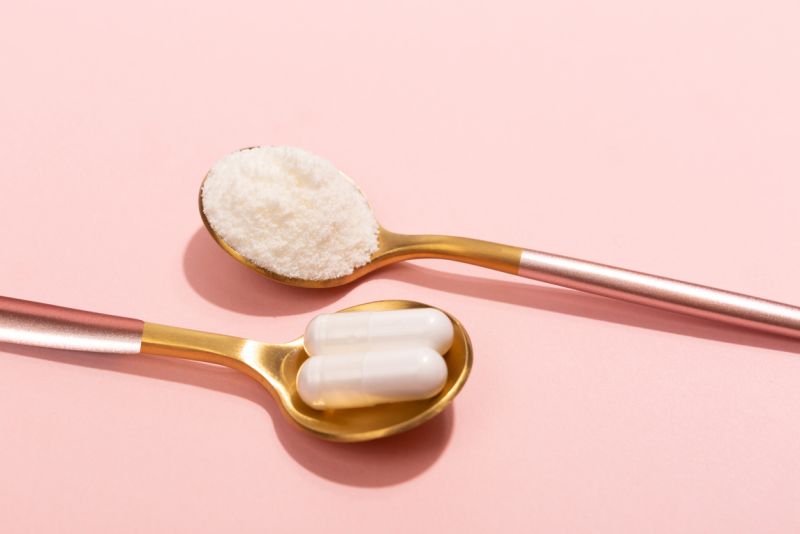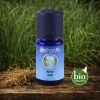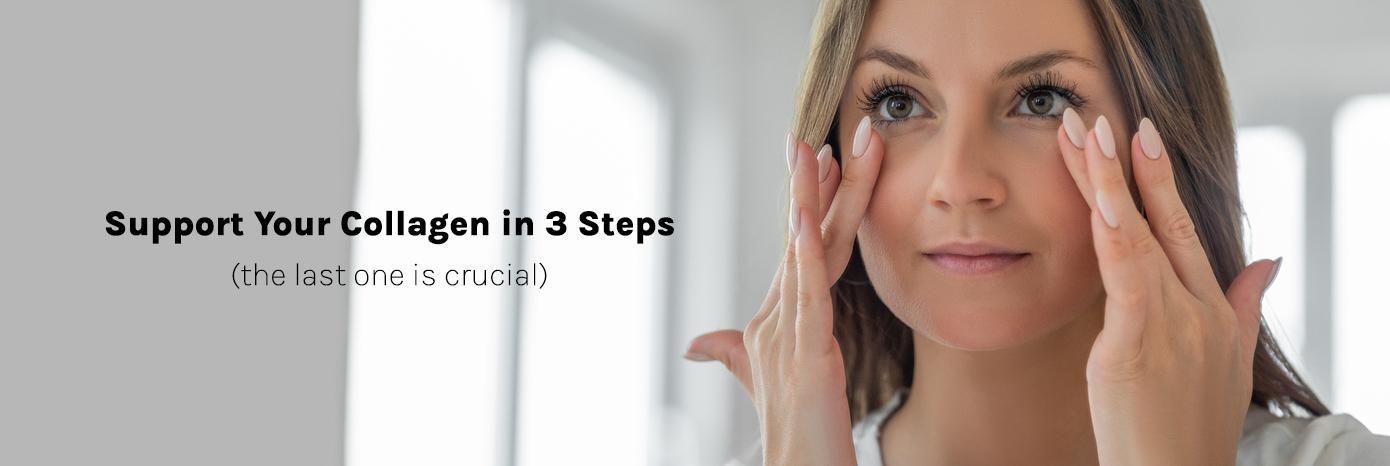Beauty News, Bonusan
Support Your Collagen in 3 Steps
Collagen is responsible for the elasticity and firmness of your skin. From the age of 25, the collagen in your body gradually decreases, which can lead to the appearance of wrinkles.
To maintain beautiful skin as you age, it is important to support the collagen reserves in the deeper layers of your skin. Many people use creams, but these cannot penetrate these deeper skin layers. Taking collagen supplements is also popular nowadays. However, this approach only addresses the symptom without tackling the underlying cause. Your body is designed to produce collagen on its own. In this article, we will explain how to support your natural collagen production in three steps.
Turn on the body’s self-healing power!
 What is Collagen?
What is Collagen?
Collagen is the most important protein in your body. It provides structure, elasticity, and firmness not only to your skin but also to your:
- Cartilage
- Bones
- Tendons
- Ligaments
- Blood vessels
- Gums
From the age of 25, collagen in your body decreases. Here are the signs of decreasing collagen levels:
Signs of Decreasing Collagen Levels
You may notice the following signs as your collagen levels drop:
- The appearance of wrinkles
- Dull skin
- Lifeless hair
- Brittle nails
- Receding gums
Additionally, you might notice your skin becoming looser, especially around your cheeks and eyes. To support collagen production as effectively as possible, follow these three simple steps.
How to Support Natural Collagen Production
These three steps are crucial for your collagen. While all steps are important, the last one is particularly vital.
Step 1: Lifestyle
It probably comes as no surprise that smoking and stress negatively affect the collagen in your body. UV exposure can also damage the collagen in your skin, so be careful with sun exposure.
Step 2: Nutrition
To maintain radiant skin, it is essential to eat healthily. Try to avoid fast carbohydrates as much as possible, as they negatively impact collagen production. Fast carbohydrates (or sugars) are found in:
- Pizza
- White bread
- White rice
- White pasta
- Cookies
- Alcohol
- Fruit juices
- Soft drinks
So, what should you eat instead? It is crucial to eat enough proteins since collagen is structurally made of proteins. Antioxidants are also important. Ensure a varied and fresh diet with the following foods:
- Nuts and seeds
- Meat or fish (preferably with the skin still on)
- Vegetables and fruits
- Homemade broth from fish or bone broth
- Gelatin from animal skins and bones, such as crispy chicken skin
Also, drink plenty of water. The recommendation for adults is to drink between 1.5 and 2 liters of water per day.
Step 3: Vitamin C
Vitamin C is crucial for collagen formation. It is one of the most studied cosmetic ingredients and very important for your skin. Dermatologists love it. Vitamin C contributes to the formation of collagen that helps firm the skin and protects your cells against oxidative damage from UV radiation. Vitamin C is found in foods such as:
- Oranges
- Lemons
- Kiwis
- Peppers
- Tomatoes
- Broccoli
- Spinach
In some cases, there is an increased need for vitamin C, such as when you:
- Drink a lot of alcohol
- Smoke
- Exercise a lot
- Need to support your immune system and/or energy levels
- Eat a one-sided diet
If you want to ensure that you are getting enough vitamin C to support collagen formation, you can also opt for a supplement. Various forms of vitamin C are available, each working slightly differently.
Conclusion
- Collagen is an essential protein in your body, providing firmness and elasticity to your skin, among other things.
- To take good care of your collagen, avoid smoking, stress, fast carbohydrates, and excessive UV exposure. Choose healthy and fresh food.
- Vitamin C is important for collagen formation, which helps firm the skin and protects cells against oxidative damage from UV radiation.
- In these cases, there is often an increased need for vitamin C: when you drink a lot of alcohol, smoke, exercise a lot, need to support your immune system and/or energy levels, and if you eat a one-sided diet.


































 Beauty Products
Beauty Products By Skintype
By Skintype Brands A-Z
Brands A-Z Wellness
Wellness Health / Nutrition
Health / Nutrition